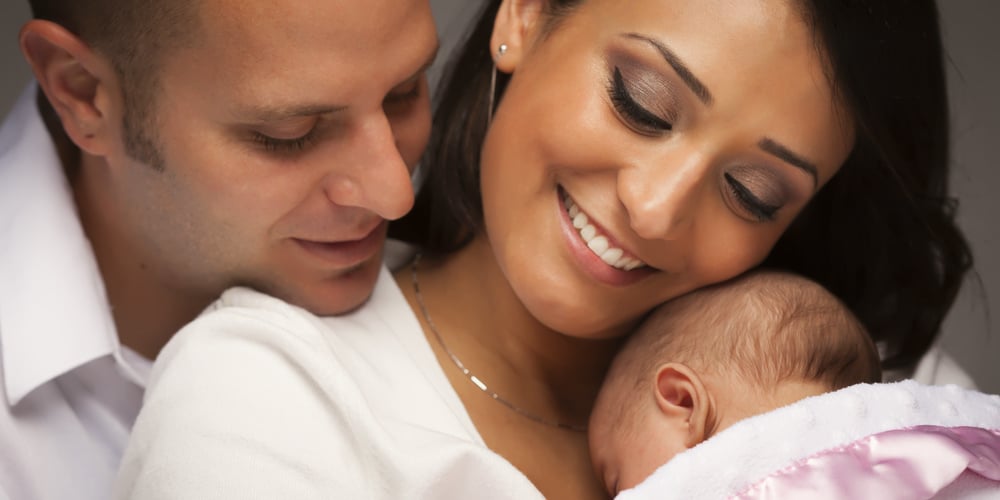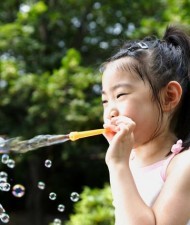Your Children Are Not Your Children
“Your children are not your children. They are the sons and daughters of Life’s longing for itself. They come through you but not from you, and though they are with you yet they belong not to you.”
I heard this Gibran’s poem for the first time when I was a teenager. I couldn’t make any sense of it, but it intrigued me because as a young woman I believed that I belonged to my parents and that when my turn came to be a mother my children would belong to me.
Time has proven to me that Gibran was right. We don’t own our children. We don’t have any control over their exquisite lives. We are vessels for them to come into existence and models of behavior for them to learn how to negotiate the world. We give them values, beliefs and tools to grow and succeed. We give them a structure to expand and excel. We provide nurturing, safety and love, and after all is said and done we must stand out of the way and let them go. We must entrust them with their inherent freedom to live their own lives.
Being a parent is a tall order. It is about giving without expecting anything in return; perhaps the closest one could get to unconditional love.
In the month of February we are focusing on relationships and love. The relationship that we have with our children will determine the path for their journey. It will mark their experience and seal their future.

Authoritarian parents expect children to conform to their rules without questions or discussion. We are all familiar with the phrase: “because I say so.” We have heard it, or admit it to yourself, said it a couple of times. Children raised by authoritarian parents miss out in the opportunity to learn how to problem solve and own their decisions. The most frightening aspect of this parenting style is that in the end, this kids end up rebelling against parental authority big time!
Permissive parents know no rules or consequences for their children; however, they shower their children with love and attention and expect to be “best friends.” Unfortunately, these young ones grow up to be self-indulged and prone to participate in high-risk behaviors because they haven’t learn how to measure the consequences of their actions.
Uninvolved parents don’t provide children with rules or emotional support. Their motto is: “kids will be kids and they need to learn from their mistakes.” Children in this environment learn how to attract attention by negative behaviors and they end up involved in all kinds of trouble: truancy, drugs, and unhealthy relationships.
The fourth parenting style is authoritative. In this style, parents balance rules, consequences, love and emotional support. Parents learn how to give in and allow their children’s self-expression and at the same time to be firm when it is necessary to take a stand and set boundaries. The authoritative style requires maturity, introspection and the desire for self-improvement. It is perhaps the most demanding on parents because it requires that you depart from the style that your parents engraved in your subconscious. It is also the most rewarding for children since it affords them the chance to learn and experiment with life while being supported and directed by the love of their parents.
I believe that in the course of our time as parents we often fluctuate from one style to the other according to the circumstances that we are in. We are imperfect and always in flux as human beings. But there should be a progression towards improvement. Take a look in the mirror like Dr. Ginsberg suggests and honestly answer the question: “how do I parent my child?”
In my every day interaction with families, I have noticed that parents have difficulty saying no to their children. Perhaps this happens as a desire to depart from the authoritarian style of their own parents, or because they feel that allowing is more enriching than restricting, or may be because they feel that by setting boundaries they may hinder their relationship with their little ones. The end result is a dysfunctional interaction between parent and child, one that will not serve the child in the future when he or she enters the world.
Guidance and structure make children feel safe. Children who grow up with loving rules and expectations from their parents are more able to cope with the demands of a world that is more complex and demanding than ever. As parents our most important role is to prepare our children to be productive and independent adults and that is the biggest love of all.



 My job is fun. I get to spend time with babies, toddlers, school age kids and teenagers. In fifteen to 20 minute sessions, I spend my day traveling from the blissful state of the first few months of life to the conflict driven years of adolescence with multiple stops on the terrific twos.
My job is fun. I get to spend time with babies, toddlers, school age kids and teenagers. In fifteen to 20 minute sessions, I spend my day traveling from the blissful state of the first few months of life to the conflict driven years of adolescence with multiple stops on the terrific twos.